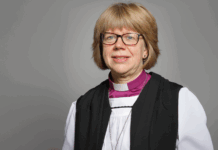(Endorsed by ten of the twelve survivors of abuse who are awaiting a review of their complaints by the church. Letter dated 24 September 2023)
Dear Archbishops’ Council Trustees,
An open Letter to Archbishops’ Council – In the interest of all victims and survivors of church abuse
We write to you as those most directly affected by some of your recent decisions and wish to alert you to the significant impact those decisions have had on us, some of your most vulnerable charity beneficiaries.
We are aware that you are meeting on 25th September 2023 and ask that this letter is tabled and discussed at that meeting.
We represent ten of the twelve survivors of Church of England abuse who have had our complaints or reviews approved through the Independent Safeguarding Board’s governance arrangement prior to your decision to close the ISB. It is clear to us that this decision was made without taking any form of precaution for our ongoing care or any plan to communicate the decision in a way which would reduce the substantial levels of distress and trauma that were a foreseeable consequence.
In the period since you closed the ISB we have been left in uncertainty and distress. Given that the decision and its timing was wholly in the gift of you as trustees, it is devastating that so little thought and preparation was put into its implementation. We can only conclude that the needs of survivors of church abuse were not considered, and it is devastating to be reminded, yet again, that Church leaders have learned nothing from the repeated evidence of harm such lack of consideration causes.
In the immediate aftermath of your decision in June, to close the ISB without warning, we were informed that any reviews or complaints that are underway or are due to start would be honoured, along with a commitment to contact survivors and complainants as soon as possible to progress these. This has not happened.
On 14th September 2023, it was announced that a “commissioner” had been appointed and that survivors had a variety of options to choose from in completing their reviews. It was also stated that the majority of survivors have had an opportunity to feed into these arrangements, save for four individuals. This is not true.
As a group, we have deep reservations about the way in which the Archbishops’ Council have behaved in this matter. The absence of meaningful engagement and consultation with survivors runs contrary to the Archbishops’ Council’s duty of care and best practice.
This constitutes a significant safeguarding failure on the part of trustees. It also means that the arrangements put in place have serious deficiencies:
- The absence of any transparent process for the appointment of the “commissioner” means that there are serious questions about in whose interests he is working.
- The “menu of reviewers” provided for survivors is compromised and there is a significant conflict of interest in almost all cases and a significant lack of relevant experience in the remainder.
- At least one of us has been assured that they can keep a reviewer who was chosen in a trauma-focused and consultative way. We believe this is correct but are disheartened and feel let down, that the rest of us do not have the benefit of a similarly appropriate process. This lack of equity is unacceptable.
- There is no evidence that steps have been taken to minimise our re-traumatisation, with the expectation that we meet with the “commissioner” and outline our cases and complaints again.
- The change of emphasis in whether reviews will be honoured is causing serious distress.
- The arrangements lack any form of objective independence of the type we had when the ISB was in place, meaning that the Archbishops’ Council has effectively undermined the purpose of the whole process.
- We all share the distress of Mr X and find the lack of progress in response to the reasonable recommendations in his review report significantly undermine any notion that the trustees of the Archbishops’ Council have any intention of meeting their obligations with integrity.
These difficulties were foreseeable and could have been avoided by a simple approach of communicating and engaging with those most directly affected by the process. The many difficulties with this process have already convinced some of us that engaging with the “commissioner” is futile.
There is no forum in which we can communicate with the Archbishops’ Council, which exacerbates the feelings we have of being marginalised and dismissed by those who should be urgently consulting us. We would ask that a mutually acceptable communication channel is established urgently. A meeting between us and trustee members of the Archbishops’ Council is now essential and urgent.
The impact of the failure to manage this process in line with safeguarding best practice has been serious for all of us, but we have no forum through which to raise these concerns. Collectively, we believe that the harm these decisions have caused needs to be independently assessed and we have asked an expert clinical psychologist to complete this work as a matter of urgency.
We have all engaged with Church authorities in various places for many years and these complaints and reviews represent our final opportunity to achieve a just outcome to our concerns and objective assessment of our cases. As those who continue to suffer, we deserve better than you are offering.
The absence of meaningful engagement with us about the processes announced is in marked contrast to the approach taken by the ISB and we urge you, as trustees, to take steps to ensure that our cases are treated with the necessary seriousness and independence. We have requested that Phil Johnson sends this letter on our behalf, as someone who understands survivors of Church Abuse, he was invited to independently chair our first meeting as a group. We will continue to meet as a group with a common experience of the Church of England and we send this letter as survivors in unity.



